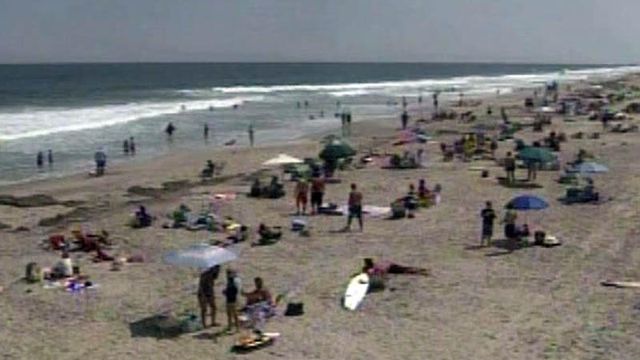School calendar debates heat up again in NC
A growing number of North Carolina school districts are trying to get around state regulations on setting instructional calendars.
Posted — UpdatedSince 2004, state law has dictated the annual calendar to prevent schools from starting too early in August. For 2013-14, the earliest traditional-calendar public schools can open is Aug. 26, and classes must end no later than the Friday closest to June 11.
The State Board of Education has already granted waivers to a dozen districts in western North Carolina, allowing them to open a week earlier so they can build snow make-up days into their calendars.
But lawmakers representing dozens of other districts have filed for waivers as well. Some of the bills, which all sit in House committees, simply ask for the date restrictions to be scrapped for particular districts, while others say districts want to align their calendars with local community colleges for high school students.
"I believe local school districts and boards of education should have flexibility to determine when school starts and when it would end," State Superintendent of Public Instruction June Atkinson said Thursday. "There are different needs across the state, and that flexibility should be given to local school boards."
Louise Lee, who heads up the group Save our Summers that lobbied for the school calendar law nearly a decade ago, said the reasons for creating the law still exist.
"Families moving into North Carolina, especially military families, were moving in the fall, late August, only to find their students missed the first two weeks of school," Lee said. "Plus, just the family time in the summer (is important)."
A late August start to school also benefits coastal communities and the economy, according to the North Carolina Travel and Tourism Coalition. The group, which supports the calendar law, says the extra weeks of summer vacation produce as much as $1 billion a year in tourism-related sales.
Lee said local control of school calendars should rest with parents, students and teachers, not with school boards.
"They were abusing that local control, and when they’re trying to get that back, we remember," she said. "They were ignoring the pleas of grassroots, not having consistent starting dates year to year and not listening to families."
• Credits
Copyright 2024 by Capitol Broadcasting Company. All rights reserved. This material may not be published, broadcast, rewritten or redistributed.






